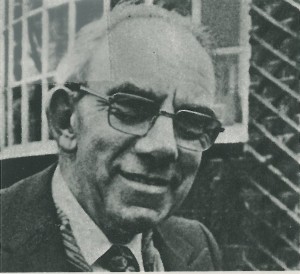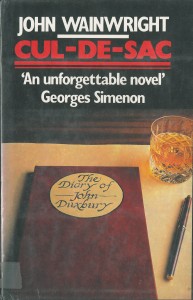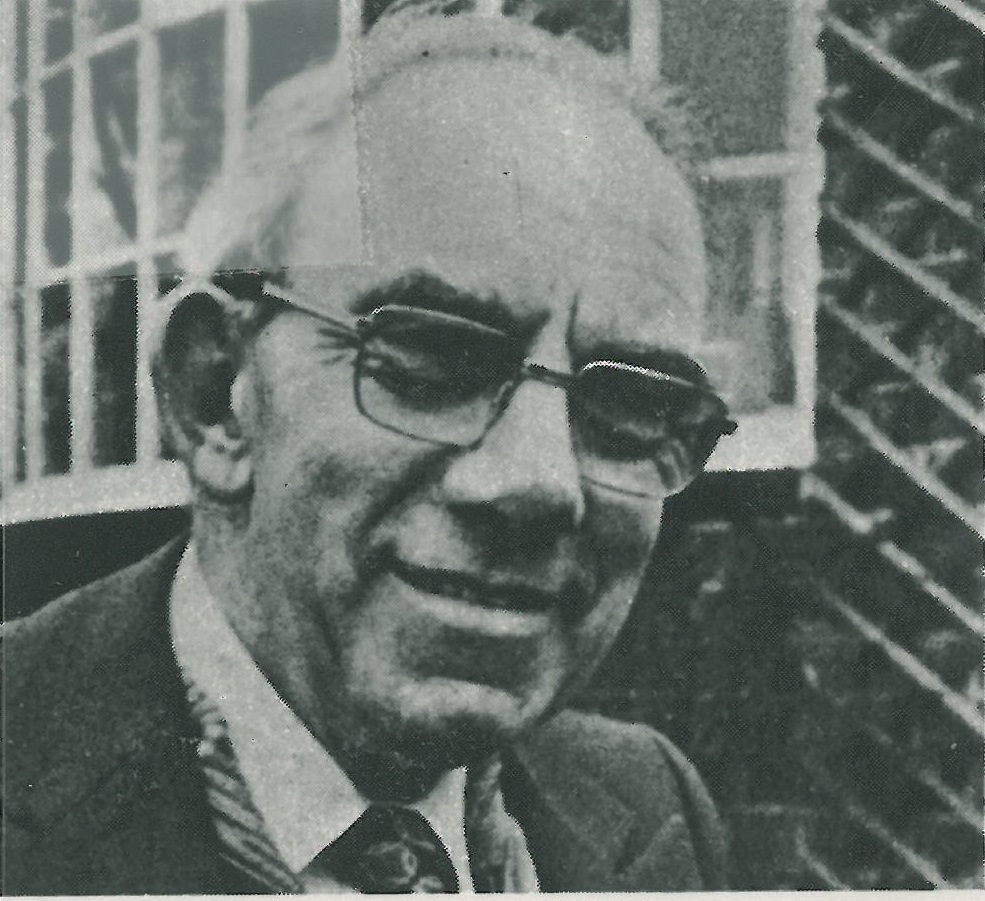Forgotten Leeds – a mini-series of short introductions to three little-known figures connected to Leeds by birth and/or their work here in the city – part two:
John Wainwright (1921-1995) – the forgotten novelist: a serving policeman turned crime writer

Born in Hunslet, Wainwright joined the West Riding of Yorkshire Constabulary in 1947, shortly after demobilisation from the RAF, where he had served as a gunner on Lancaster bombers. In his spare time, he gained a law degree (LL.B.) after seven years of study, and initially wrote articles for the Police Review on legal aspects of policing and criminal law. By the early 1960s, incidents and characters from his career, gathered along the way, were supplying material that he would later incorporate into his novels. Wainwright defined his first fiction as ‘police procedural’, and was influenced by his reading of crime fiction, notably Raymond Chandler and Dashiel Hammett. After joining the Harrogate Writers’ Circle with wife Avis, he began to hone his craft. He recounts having “read a batch of particularly badly written crime novels; the authors had missed out on groundwork, didn’t know how coppers talked and hadn’t a clue about the sheer chaos of a genuine murder enquiry. I figured I could do as well… probably better.” He did however anticipate some opposition from his superiors to his embarking on this particular alternative career; correctly, as it turned out.
His first novel, Death in a Sleeping City, was accepted by Collins Crime Club and published in 1965, but he was told by a senior officer that “Coppers aren’t allowed to write books… Get that rubbish back before it gets printed.” Undeterred, in fact more determined than ever to pursue his vocation after the success of his first book, Wainwright resigned from the West Yorkshire police force the following year (only five years away from his pension, testimony to his confidence in his abilities). Devoting himself to writing full-time, he became a prolific author of crime novels, acclaimed by fellow writers such as Georges Simenon; he produced some eighty books between 1965 and his death in 1995. Wainwright also wrote autobiographical accounts of his time in the RAF (Tail-End Charlie) and the subsequent years in the police force (Wainwright’s Beat), a home security manual (Guard Your Castle) and numerous articles, essays, radio plays and a column in the Northern Echo. His 1979 novel Brainwash – detailing the relentless interrogation of a child murder suspect in the north of England – was transposed to France and Puerto Rico, and filmed as Garde à Vue (1981) and Under Suspicion (2000) respectively.
Wainwright concluded that “I count myself a very lucky man: a crime novelist… who doesn’t have to make do with second-hand knowledge. I have been there… Reviewers once described me as a policeman who wrote books. They now describe me as a crime novelist who was once a policeman.”
Although his books are now out of print, Leeds Central Library’s Local History section has extensive holdings of Wainwright’s work – both fiction and memoir – which are available to consult as reference copies. His personal archive, as yet uncatalogued, is held at the University of Leeds Library’s Special Collections.

You can read Forgotten Leeds 1, Joash Woodrow here and Forgotten Leeds 3, Martin Bell here.

